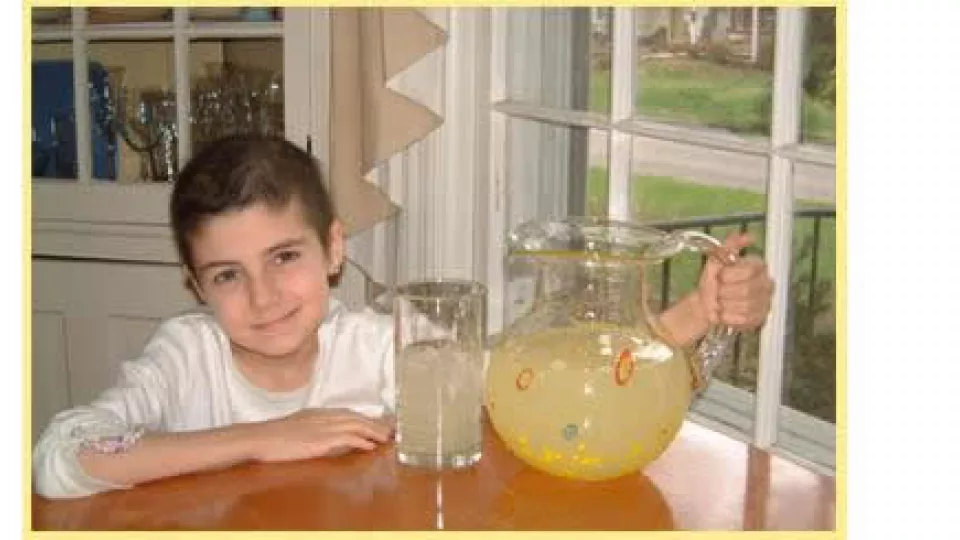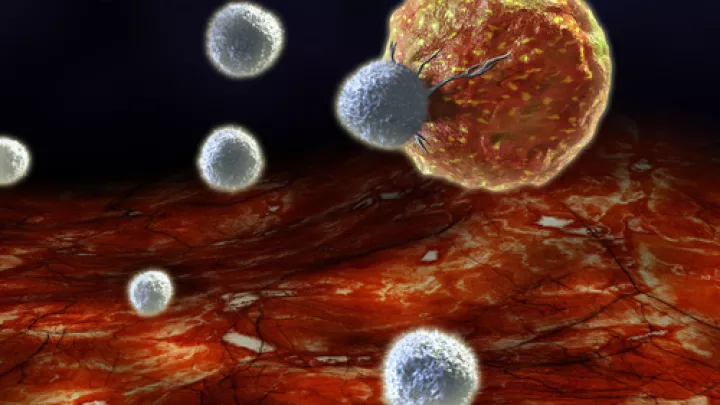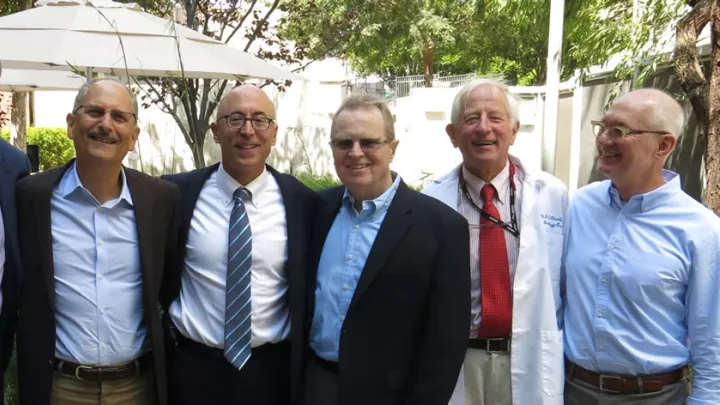
Alex’s Lemonade Stand Awards Innovation Grants to CHLA Researchers
When life gives you lemons, make some lemonade.
Alexandra “Alex” Scott gave new meaning to the saying when, at the age of four, she began selling lemonade to fund pediatric cancer research. She had been diagnosed with neuroblastoma, a pediatric cancer of the sympathetic nervous system, just before her first birthday. During her lifetime, she and her supporters raised over $1 million for pediatric cancer research.
Alex passed away in 2004 when she was just eight years old, but her work lives on through the Alex’s Lemonade Stand Foundation (ALSF), started by her parents in 2005 in her honor. Today, ALSF has raised over $100 million, which has helped fund more than 500 research projects, covered travel expenses for families with children receiving treatment, and provided other resources for pediatric cancer patients. ALSF has been an important supporter of the kind of innovative pediatric cancer research conducted at the Children’s Center for Cancer and Blood Diseases (CCCBD) and The Saban Research Institute of CHLA.
Robert Seeger, MD, director of CHLA’s Cancer Research Program and Shahab Asgharzadeh, MD, associate professor of Pediatrics, have each been awarded an Innovation Grant, which are awarded to experienced researchers with “a novel and promising approach to finding causes and cures for childhood cancers.”
Both CHLA research projects will tackle new therapeutic options for pediatric cancers, specifically neuroblastoma and acute lymphoblastic leukemia (ALL). Seeger and co-principal investigator Alan Wayne, MD, director of the CCCBD, will be investigating the use of vesicles derived from natural killer (NK) cells to treat ALL and neuroblastoma. NK cells are immune cells that can kill cancer cells in the body, and researchers hope to utilize the cytotoxic vesicles they release to kill ALL and neuroblastoma cells. These vesicles will be targeted to cancer cells using antibodies, proteins produced by other immune cells that are specific to different targets.
Asgharzadeh will be investigating evasion of the immune system by neuroblastoma cells and how this can inform future enhancement of immune-based therapies, specifically immune checkpoint therapy. Immune checkpoint therapy works to amplify immune responses to cancer cells by preventing the blocking of these responses (“immune checkpoints”) by the body and by cancer cells themselves. Asgharzadeh’s research will attempt to improve this form of immune-based therapy by combining it with targeted therapies that also attack the immune cells co-opted by the tumor cells to protect them.
Image Credit: Alex’s Lemonade Stand Foundation (http://www.alexslemonade.org/)


